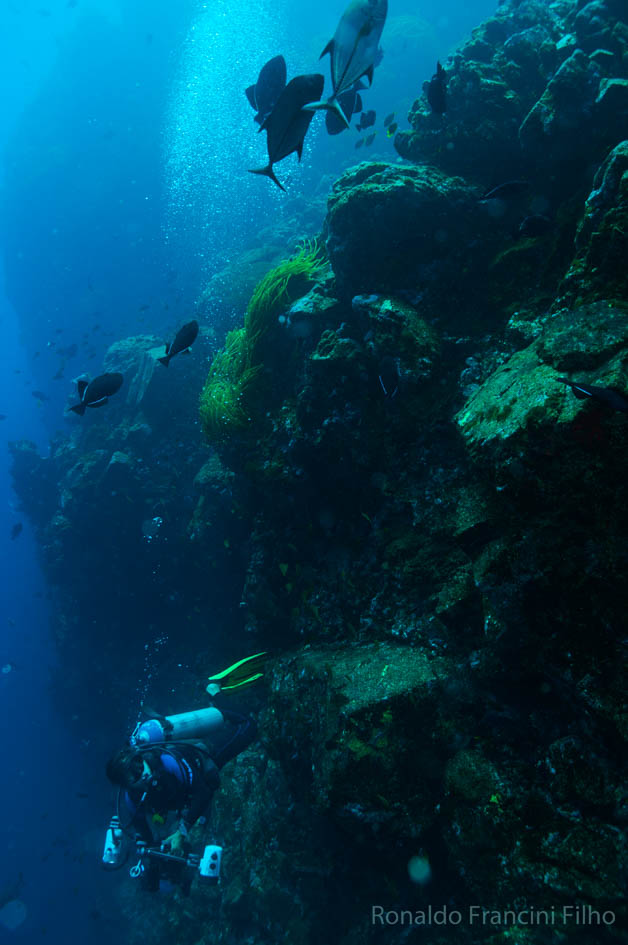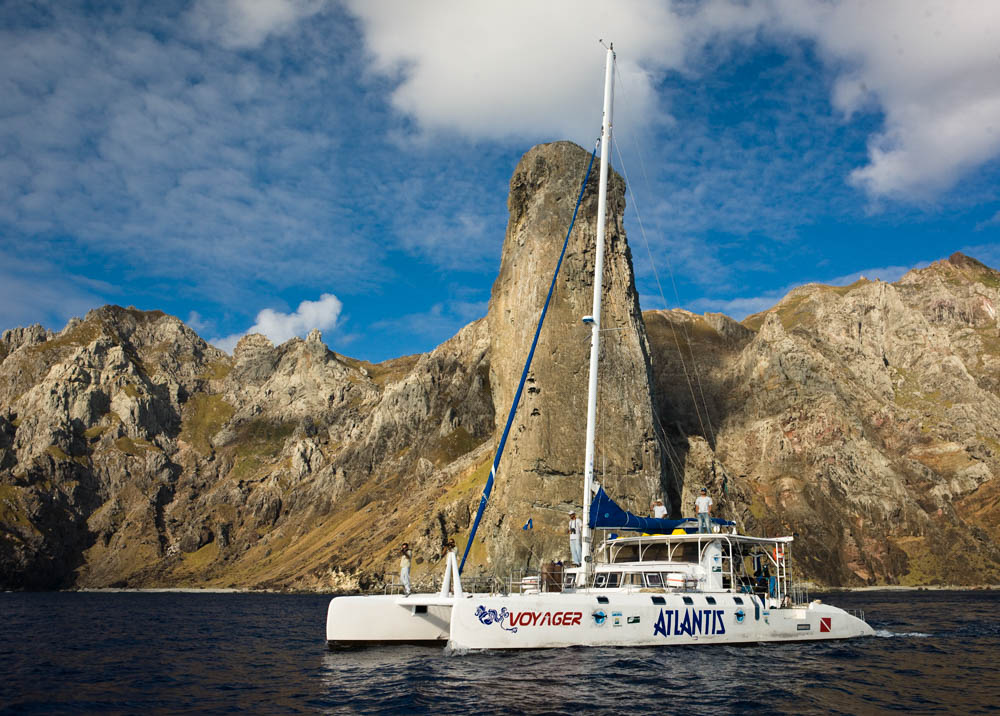Brazil is on the verge of changing marine conservation history in the South Atlantic. After lagging behind other developing countries in Marine Protected Area coverage, with only 1.5% of its jurisdictional waters under some sort of protection, the Brazilian goverment has opened public comments on proposals to establish a mosaic of MPAs around the oceanic archipelagos of St. Peter & St. Paul Rocks and Trindade & Martim Vaz, covering approximately 900,000 square kilometers and making Brazil´s MPA coverage jump to some 21% of its EEZ.

Both archipelagos are biodiversity hotspots and their surrounding waters harbor many endemic, vulnerable and endangered species, inclduing whales, sharks, sea turtles and many pelagic species severly depleted by industrial overfishing. Despite being far from shore, both areas have an enormous potential for SCUBA diving given the unique wildlife and underwater landscapes, and oceanic whale watching, and if protected might give rise to a whole new liveaboard industry, according to Divers for Sharks and the Brazilian Humpback Whale Institute, two of the Brazil-based NGOs spearheading the proposals.
The mosaic includes proposals for two core no-take areas of approximately 109,000 sq. Km of Natural Monuments, strictly no-take areas where fishing, mining and any extractive activity would be totally prohibited, whereas in the surrounding multiple-use zones fishing would be strictly regulated. A coalition of Brazilian environmental NGOs and Tourism sector stakeholders, however, is pushing for the no-take zones to be greatly expanded.

The President of Brazil, Michel Temer, is expected to make a decision in eraly March, after the public consultation period ends. Any organization or individual interested in submitting expressions of support for these MPAs can do so by writing to consultapublica@icmbio.gov.br, gabinetepessoal@presidencia.gov.br, ministro@defesa.gov.br, assistcm@marinha.mil.br, gm@mma.gov.br, emphasizing that the expansion of Integral Protection no-take MPAS is most welcome and necessary to safeguard marine biodiversity.






